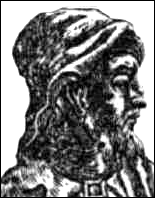The Golden Sayings of Epictetus

CLI
God hath made all things in the world, nay, the world itself, free from hindrance and perfect, and its parts for the use of the whole. No other creature is capable of comprehending His administration thereof; but the reasonable being Man possesses faculties for the consideration of all these things— not only that he is himself a part, but what part he is, and how it is meet that the parts should give place to the whole. Nor is this all. Being naturally constituted noble, magnanimous, and free, he sees that the things which surround him are of two kinds. Some are free from hindrance and in the power of the will. Others are subject to hindrance, and depend on the will of other men. If then he place his own good, his own best interest, only in that which is free from hindrance and in his power, he will be free, tranquil, happy, unharmed, noble-hearted, and pious; giving thanks for all things unto God, finding fault with nothing that comes to pass, laying no charge against anything. Whereas if he place his good in outward things, depending not on the will, he must perforce be subject to hindrance and restraint, the slave of those that have power over the things he desires and fears; he must perforce be impious, as deeming himself injured at the hands of God; he must be unjust, as ever prone to claim more than his due; he must perforce be of a mean and abject spirit.
 Continue...
Continue...![[Buy at Amazon]](http://images.amazon.com/images/P/B000EWGY2C.01.MZZZZZZZ.jpg)